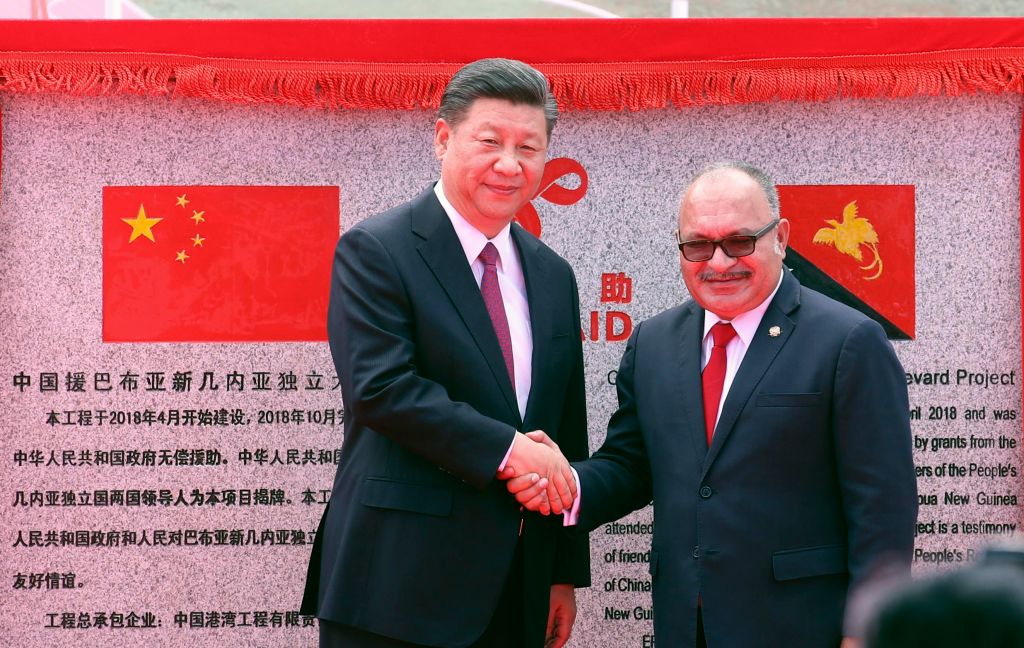
Australian debates about the geopolitics of the Pacific islands in many ways represent the broad contours of discussions about Australia’s foreign and strategic policy, notably our relations with China. It’s possible to identify two dominant perspectives in these debates.
The first concerns the risk that, over the coming decades, a potentially hostile China establishes a strategic foothold in the Pacific islands from which it could threaten Australia. Preventing this has been
identified as one of Australia’s primary strategic interests for the past 30 years. These concerns have recently been heightened by, for example, the
assertive stance taken by Chinese Defence Minister Wei Fenghe at the recent Shangri-La Dialogue, or the comment by Professor Yu Lei from Liaocheng University, at a
workshop at the Australian National University on 3 June, that it would be helpful for Beijing to have military bases in the Pacific islands to break the ‘encirclement’ of China.
Having been part of conversations about Pacific islands’ geopolitics in Canberra, Washington and Wellington over the past six months, I’m concerned that this viewpoint risks creating self-fulfilling prophecies about the perceived threat posed by China.
The second perspective is characterised by scepticism about what China’s presence in the Pacific islands means for Australia and Pacific island states and criticism of Australia’s increasingly securitised approach to its relations with the region. Concerns about potential militarisation of the region have been heightened by recent Australian defence-related announcements, including the
signing of a memorandum of understanding with Papua New Guinea to redevelop the Lombrum naval base on Manus Island.
This perspective emphasises the
autonomy and agency of Pacific island states when dealing with China and other external powers, as well as their
desire to be ‘friends to all’. My concern is whether Pacific island states will be able to maintain their autonomy, exercise their agency or avoid the wider geopolitical debates.
At the 3 June ANU workshop, participants from Australia, New Zealand and the Pacific islands considered the implications of the changing geopolitics of the region. It was clear from the discussions that
Pacific islanders are concerned about being dragged into debates about geostrategic competition that they don’t want to be part of. Pacific islanders are well aware of the consequences of geopolitical competition; the front lines of World War II in the Pacific were largely in their neighbourhood.
It was also clear that Pacific island states don’t always share Australia’s geopolitical perspective. In particular, many don’t necessarily see China as potentially threatening. In fact, Pacific island states have developed ‘
tactical, shrewd and calculating approaches’ to exercising their agency in relation to the ‘often ignorant and patronizing attitudes’ of partners such as China and Australia.
And this is an important point for Australians to remember in discussions about the potential for a ‘
new Cold War’. While it’s important not to be too relativistic and treat Australia and China as morally equivalent—one is an (admittedly imperfect) liberal democracy and the other is an authoritarian state—for many Pacific islanders, Australia is not seen as inherently ‘good’.
We can’t assume that
our attempts to exercise leadership will result in Pacific islands’ ‘followship’. Australian colonialism is within the living memory of many Nauruans and Papua New Guineans; Bougainvilleans have vivid memories of Australian-donated helicopters being turned into gunships, and Manusians and Nauruans live with the consequences of Australia’s ‘Pacific solution’.
Most significantly, as Collin Beck, Permanent Secretary of the Solomon Islands Ministry of Foreign Affairs and External Trade, said in his
keynote speech, climate change is a ‘death sentence for the Pacific’. Indeed, climate change was recognised as the ‘
single greatest threat’ to the region in the Pacific Islands Forum’s 2018 Boe Declaration. Australia’s failure to take serious domestic action to meet its Paris Agreement targets raises questions about
our commitment to our Pacific ‘family’.
The most encouraging thing to come out of the workshop was the recognition that there are opportunities for moving the Australian debate forward by addressing the gap between these differing perspectives.
First, while scepticism about the potential consequences of China’s increased presence in the Pacific islands is sometimes characterised as, at best, naive, or, at worst, appeasement, no participant denied the emerging strategic and geopolitical realities facing the region. The contentious debate is around their likely consequences.
Second, Pacific island states want their interests to be respected, and can creatively use their political authority to pursue them when dealing with China, Australia and other partners. Australians need to be circumspect about our ability to exercise influence and not assume that the strategic interests of Pacific island states will necessarily mirror our own.
So instead of Australian debates about the geopolitics of the Pacific islands being framed as a ‘
China choice’, they could instead represent a ‘China chance’: the opportunity to identify interesting ways for Pacific island states to exercise their agency to facilitate partners such as Australia, New Zealand and China working together to build confidence and defuse tensions in the region. Given the alternatives, this approach at least seems worthy of further debate.
 Print This Post
Print This Post